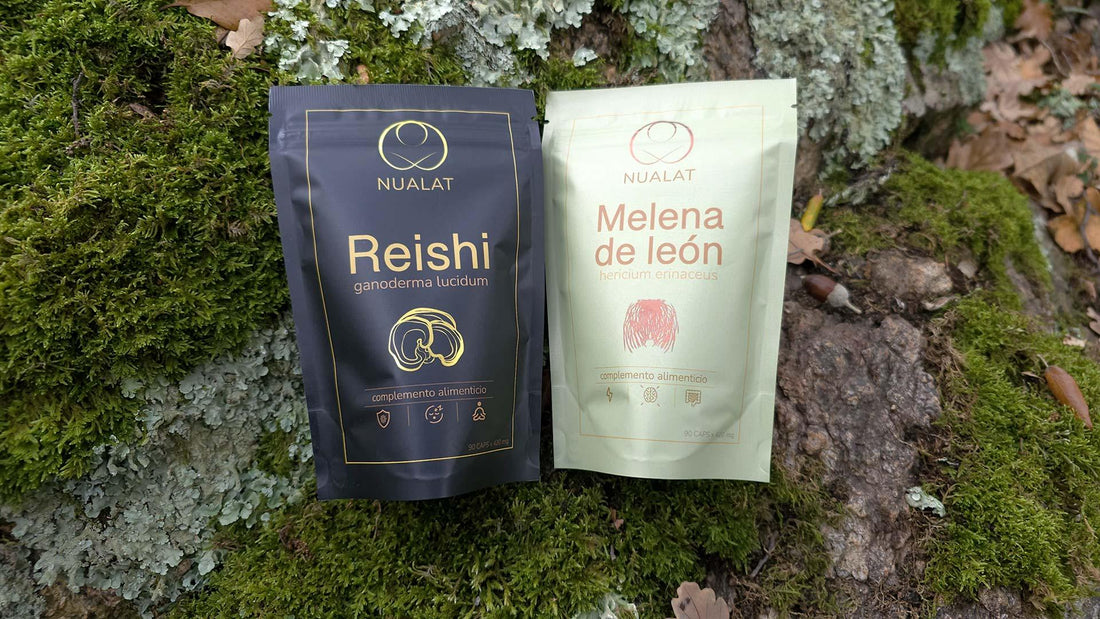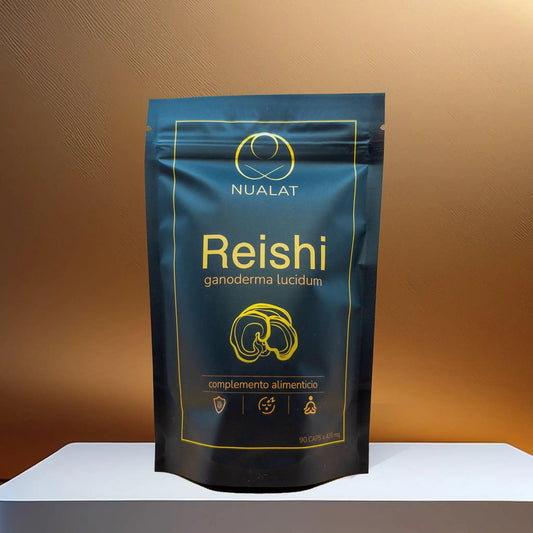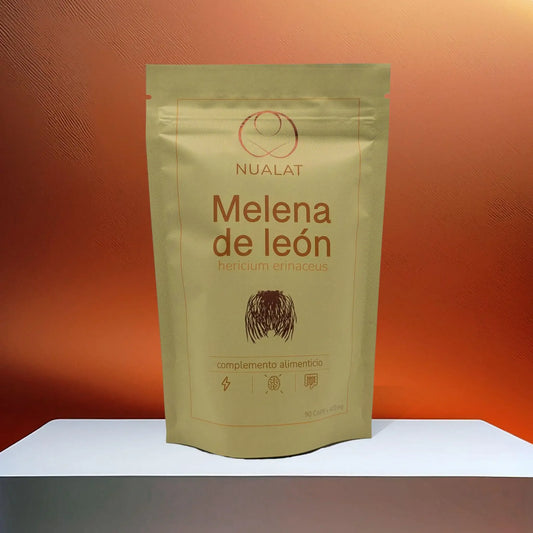
Natural adaptogenic mushrooms: Fight stress with medicinal mushrooms
Share
Stress is a physiological response of the organism designed to ensure survival in dangerous situations. However, nowadays, chronic stress has become a widespread problem, associated with exhausting work days, economic worries and constant environmental changes. This prolonged condition not only affects the mind, but also compromises physical health by triggering imbalances in the nervous system, metabolism and immune system. In this context, adaptogenic mushrooms emerge as a promising alternative, not only to mitigate the negative effects of stress, but also to optimize the body's ability to adapt to daily demands.
Impact of stress on the body
Stress acts through the hypothalamic-pituitary-adrenal (HPA) axis, a system that regulates the release of hormones such as cortisol, which is responsible for preparing the body for a rapid response to perceived threats. When this mechanism is activated continuously, an imbalance occurs that seriously affects the body. Elevated cortisol levels over prolonged periods cause neuronal damage, chronic fatigue, insomnia and a decrease in the effectiveness of the immune system, making the body more vulnerable to disease.
Recent studies have shown that stress not only has emotional and cognitive implications, but can induce neuroinflammation that accelerates brain aging. This is where adaptogenic mushrooms, in particular Ganoderma lucidum (Reishi) and Lion's Mane ( Hericium erinaceus ), play an essential role by acting on multiple biological pathways to counteract the effects of stress.
Adaptogenic mushrooms and their impact on stress mechanisms
The term "adaptogen" refers to natural substances that increase the body's resistance to physical, biological or environmental stressors. These compounds have the ability to modulate homeostasis, balancing the body's responses without causing side effects. Medicinal mushrooms are natural adaptogens and stand out for their complex bioactive composition, which includes polysaccharides, beta-glucans , triterpenes and antioxidants.
One of the most studied mushrooms in the context of stress is Ganoderma lucidum , known as Reishi . Scientific research, such as that published inFrontiers in Pharmacology (2022), has shown that the triterpenes present in Reishi have anxiolytic and anti-inflammatory properties by acting on the GABA receptors in the brain. This modulation promotes a reduction in neuronal excitability and facilitates a state of calm in individuals exposed to high levels of stress.
On the other hand, Lion's Mane has attracted the attention of the scientific community for its ability to protect and regenerate neurons. A study carried out by Saitsu et al. in 2019 showed that the active compounds in Hericium erinaceus stimulate the production of nerve growth factor (NGF), a protein essential for the repair of neuronal connections damaged by chronic stress. This finding suggests that Lion's Mane not only improves cognitive function, but also reduces symptoms of anxiety and mental fatigue resulting from prolonged stress.
Seasonal stress and the role of medicinal mushrooms
Winter, a time marked by fewer hours of sunlight and low temperatures, often aggravates the symptoms of stress and its effects on the body. The combination of external factors, such as a lack of vitamin D and an increase in seasonal infections, directly impacts the immune system and emotional state. During this period, Ganoderma lucidum and Lion's Mane can be key allies.
Reishi strengthens the immune system by stimulating the production of anti-inflammatory cytokines and T cells, which helps protect the body against infections. At the same time, its ability to regulate cortisol levels promotes the body's recovery after prolonged periods of stress. On the other hand, Lion's Mane , by improving neuroplasticity and reducing neuronal inflammation, is especially effective for those who suffer from mental fatigue during the winter months.
Scientific evidence: studies on adaptogenic mushrooms and stress
The potential of medicinal mushrooms in stress management has been supported by various researches in recent years. In a study published in Biomedicine & Pharmacotherapy (2021), it was observed that supplementation with Reishi extract significantly reduced cortisol levels in individuals with chronic stress, while improving sleep quality and energy levels.
In animal models of stress, Hericium erinaceus has been shown to reduce behaviors associated with anxiety and depression by modulating inflammation in the central nervous system and improving the production of neurotransmitters such as serotonin and dopamine. These studies suggest that adaptogenic mushrooms not only alleviate the symptoms of stress, but also address the underlying causes of physiological imbalance.
Final reflection: a scientific solution to the challenge of stress
As science delves deeper into the therapeutic potential of medicinal mushrooms, it’s becoming clear that their role in stress regulation goes beyond the anecdotal. Adaptogens like Ganoderma lucidum and Lion’s Mane offer a natural, scientifically supported avenue for balancing the body’s responses and strengthening resilience to everyday challenges. By modulating cortisol levels, protecting neurons, and boosting the immune system, these mushrooms represent a comprehensive solution to mitigating the devastating effects of stress on our physical and mental health.






